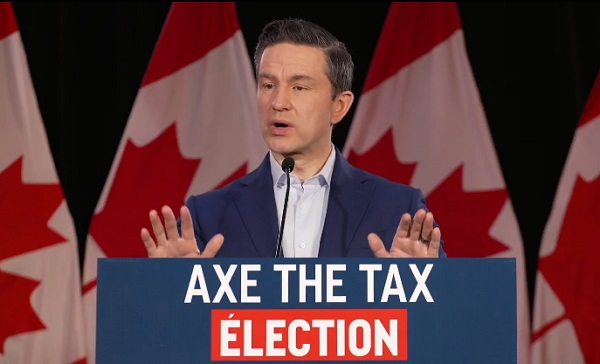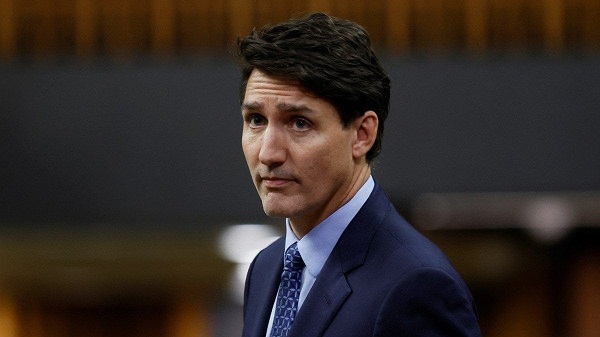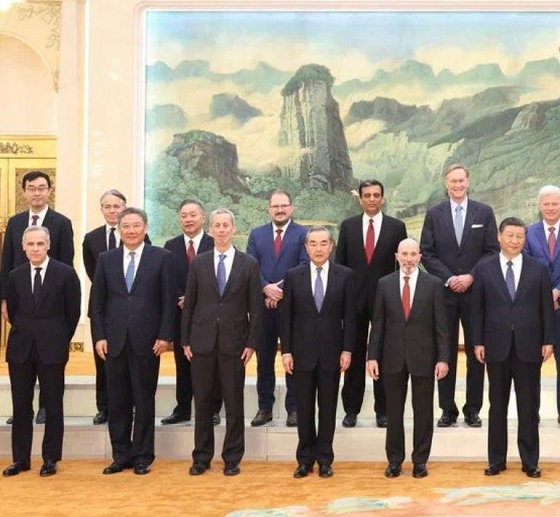Alberta
Court orders Whistle Stop Cafe to shut down

Thousands of business owners across Alberta are following the very public tilt between a Central Alberta restaurant and Alberta Health Services. Wednesday afternoon the owner of the Whistle Stop Cafe at Mirror was notified a judge has granted AHS’s emergency closure application. Although the Whistle Stop Cafe has been ordered to close, owner Chris Scott has shared on facebook page “We are open and awaiting police response.”
Like restaurants across Alberta, the Whistle Stop Cafe closed in mid December as ordered by the Provincial Government. The Cafe remained closed for 4 weeks but when the province announced an indefinite extension to the closure orders, Scott decided he could not afford to remain closed any longer. On January 21st the Cafe reopened with limited seating for social distancing, asking customers and staff to wear masks while moving about. Since defying the closure order the Whistle Stop has been visited by the RCMP and then by AHS.
Despite significant community support, Scott is now facing the very difficult choice to close or to fight for his right to make a living for himself and his staff members. This recent Facebook post offers a glimpse into the heart wrenching decisions being faced by many Albertans.
From the Facebook page of Whistle Stop Cafe, owner Chris Scott
As many of you know, AHS served me with court documents Monday to appear before the court. AHS has asked the Court of Queen’s Bench to order my dining room closed until an officer of Alberta health services rescinds the order. Now I have a serious decision to make. If I lose tomorrow, and an order is granted which it likely will be, do I accept the courts ruling, (legal or not,) and give the government complete control over my cafe, or do I stand on principle and openly defy that ruling and get arrested for contempt of court? I’m not a criminal. I have a family that needs me, a community that I wish to support, I like to travel. All of these would be impacted because I want to allow people to enjoy a meal sitting in a cozy cafe. I thought being a Canadian citizen meant something. I’m not a COVID denier and I haven’t once failed to ensure my staff and customers are safe. Alberta Health Services wants to force me to close tomorrow, using our justice system even though they are “allowing,” dine in service in 6 days!! (Maybe.)
What do I do?
Who’s with me?
What about all the other restaurants that are opening against the irresponsible rules? Will those owners be encouraged and remain open, with more following suit? Or will they be scared and discouraged over the infinite power of a government that doesn’t seem to listen to us?
As I sit here talking with lawyers and reporters I can hear the trucker salutes as they drive by on hwy 21. There are thousands of people who support what we’re doing here! Thousands of Albertans have spoken out against what AHS is doing to us and they’re not listening. This is a problem. I even reached out to Health Minister Tyler Shandro today with the hopes of speaking man to man about this with no response. The UCP wants us to think that they’re throwing us a bone by “allowing,” us to open on the 8th. The oppressors have some people convinced that giving them back some of their freedoms is some kind of a favor. Isn’t that ridiculous?
Premier Kenney may have slowed this thing down by announcing possible reopening on the 8th, but the problem still exists that we’re only ALLOWED to be open by our government. This fight is far from over.
-Chris”
2025 Federal Election
The High Cost Of Continued Western Canadian Alienation

From EnergyNow.Ca
By Jim Warren
Energy Issues Carney Must Commit to if He Truly Cares About National Cohesion and be Different From Trudeau
If the stars fail to align in the majority of Western Canada’s favour and voters from Central Canada and the Maritimes re-elect a Liberal government on April 28, it will stand as a tragic rejection of the aspirations of the oil producing provinces and a threat to national cohesion.
As of today Mark Carney has not clearly and unequivocally promised to tear down the Liberal policy wall blocking growth in oil and gas exports. Yes, he recently claimed to favour energy corridors, but just two weeks earlier he backtracked on a similar commitment.
There are some promises Carney hopefully won’t honour. He has pledged to impose punitive emissions taxes on Canadian industry. But that’s supposedly alright because Carney has liberally sprinkled that promise with pixie dust. This will magically ensure any associated increases in the cost of living will disappear. Liberal wizardry will similarly vaporize any harm Carbon Tax 2.0 might do to the competitive capacity of Canadian exporters.
Carney has as also promised to impose border taxes on imports from countries that lack the Liberals’ zeal for saving the planet. These are not supposed to raise Canadians’ cost of living by much, but if they do we can take pride in doing our part to save the planet. We can feel good about ourselves while shopping for groceries we can’t afford to buy.
There is ample bad news in what Carney has promised to do. No less disturbing is what he has not agreed to do. Oil and gas sector leaders have been telling Carney what needs to be done, but that doesn’t mean he’s been listening.
The Build Canada Now action plan announced last week by western energy industry leaders lays out a concise five-point plan for growing the oil and gas sector. If Mark Carney wants to convince his more skeptical detractors that he is truly concerned about Canadian prosperity, he should consider getting a tattoo that celebrates the five points.
Yet, if he got onside with the five points and could be trusted, would it not be a step in the right direction? Sure, but it would also be great if unicorns were real.
The purpose of the Build Canada Now action plan couldn’t be much more clearly and concisely stated. “For the oil and natural gas sector to expand and energy infrastructure to be built, Canada’s federal political leaders can create an environment that will:
1. Simplify regulation. The federal government’s Impact Assessment Act and West Coast tanker ban are impeding development and need to be overhauled and simplified. Regulatory processes need to be streamlined, and decisions need to withstand judicial challenges.
2. Commit to firm deadlines for project approvals. The federal government needs to reduce regulatory timelines so that major projects are approved within 6 months of application.
3. Grow production. The federal government’s unlegislated cap on emissions must be eliminated to allow the sector to reach its full potential.
4. Attract investment. The federal carbon levy on large emitters is not globally cost competitive and should be repealed to allow provincial governments to set more suitable carbon regulations.
5. Incent Indigenous co-investment opportunities. The federal government needs to provide Indigenous loan guarantees at scale so industry may create infrastructure ownership opportunities to increase prosperity for communities and to ensure that Indigenous communities benefit from development.”
As they say the devil is often in the details. But it would be an error to complicate the message with too much detail in the context of an election campaign. We want to avoid sacrificing the good on behalf of the perfect. The plan needs to be readily understandable to voters and the media. We live in the age of the ten second sound bite so the plan has to be something that can be communicated succinctly.
Nevertheless, there is much more to be done. If Carney hopes to feel welcome in large sections of the west he needs to back away from many of promises he’s already made. And there are many Liberal policies besides Bill C-69 and C-48 that need to be rescinded or significantly modified.
Liberal imposed limitations on free speech have to go. In a free society publicizing the improvements oil and gas companies are making on behalf of environmental protection should not be a crime.
There is a morass of emissions reduction regulations, mandates, targets and deadlines that need to be rethought and/or rescinded. These include measures like the emissions cap, the clean electricity standard, EV mandates and carbon taxes. Similarly, plans for imposing restrictions on industries besides oil and gas, such as agriculture, need to be dropped. These include mandatory reductions in the use of nitrogen fertilizer and attacks (thus far only rhetorical) on cattle ranching.
A good starting point for addressing these issues would be meaningful federal-provincial negotiations. But that won’t work if the Liberals allow Quebec to veto energy projects that are in the national interest. If Quebec insists on being obstructive, the producing provinces in the west will insist that its equalization welfare be reduced or cancelled.
Virtually all of the Liberal policy measures noted above are inflationary and reduce the profitability and competitive capacity of our exporters. Adding to Canada’s already high cost of living on behalf of overly zealous, unachievable emissions reduction goals is unnecessary as well as socially unacceptable.
We probably all have our own policy change preferences. One of my personal favourites would require the federal government to cease funding environmental organizations that disrupt energy projects with unlawful protests and file frivolous slap suits to block pipelines.
Admittedly, it is a rare thing to have all of one’s policy preferences satisfied in a democracy. And it is wise to stick to a short wish list during a federal election campaign. Putting some of the foregoing issues on the back burner is okay provided we don’t forget them there.
But what if few or any of the oil and gas producing provinces’ demands are accepted by Carney and he still manages to become prime minister?
We are currently confronted by a dangerous level of geopolitical uncertainty. The prospects of a global trade war and its effects on an export-reliant country like Canada are daunting to say the least.
Dividing the country further by once again stifling the legitimate aspirations of the majority of people in Alberta and Saskatchewan will not be helpful. (I could add voters from the northeast and interior of B.C., and southwestern Manitoba to the club of the seriously disgruntled.)
Alberta
Alberta’s massive oil and gas reserves keep growing – here’s why

From the Canadian Energy Centre
Q&A with Mike Verney, executive vice-president, McDaniel & Associates
New analysis commissioned by the Alberta Energy Regulator has increased the province’s natural gas reserves by 440 per cent, bumping Canada into the global top 10.
Alberta’s oil reserves – already fourth in the world – also increased by seven billion barrels.
The report was conducted by Calgary-based consultancy McDaniel & Associates. Executive vice-president Mike Verney explains what it means.
CEC: What are “reserves” and why do they matter?
Verney: Reserves are commercial quantities of oil and gas to be recovered in the future. They are key indicators of future production potential.
For companies, that’s a way of representing the future value of their operations. And for countries, it’s important to showcase the runway they have in terms of the future of their oil and gas.
Some countries that have exploited a lot of their resource in the past have low reserves remaining. Canada is in a position where we still have a lot of meat on the bone in terms of those remaining quantities.
CEC: How long has it been since Alberta’s oil and gas reserves were comprehensively assessed?
Verney: Our understanding is the last fully comprehensive review was over a decade ago.
CEC: Does improvement in technology and innovation increase reserves?
Verney: Technological advancements and innovation play a crucial role in increasing reserves. New technologies such as advanced drilling techniques (e.g., hydraulic fracturing, horizontal drilling), enhanced seismic imaging and improved extraction methods enable companies to discover and access previously inaccessible reserves.
As these reserves get developed, the evolution of technology helps companies develop them better and better every year.
CEC: Why have Alberta’s natural gas reserves increased?
Verney: Most importantly, hydraulic fracturing has unlocked material volume, and that’s one of the principal reasons why the new gas estimate is so much higher than what it was in the past.
The performance of the wells that are being drilled has also gotten better since the last comprehensive study.
The Montney competes with every American tight oil and gas play, so we’re recognizing the future potential of that with the gas reserves that are being assigned.
In addition, operators continue to expand the footprint of the Alberta Deep Basin.
CEC: Why have Alberta’s oil reserves increased?
Verney: We discovered over two billion barrels of oil reserves associated with multilateral wells, which is a new technology. In a multilateral well, you drill one vertical well to get to the zone and then once you hit the zone you drill multiple legs off of that one vertical spot. It has been a very positive game-changer.
Performance in the oil sands since the last comprehensive update has also gone better than expected. We’ve got 22 thermal oil sands projects that are operating, and in general, expectations in terms of recovery are higher than they were a decade ago.
Oil sands production has grown substantially in the past decade, up 70 per cent, from two million to 3.4 million barrels per day. The growth of several projects has increased confidence in the commercial viability of developing additional lands.
CEC: What are the implications of Alberta’s reserves in terms of the province’s position as a world energy supplier?
Verney: We’re seeing LNG take off in the United States, and we’re seeing lots of demand from data centers. Our estimate is that North America will need at least 30 billion cubic feet per day of more gas supply in the next few years, based on everything that’s been announced. That is a very material number, considering the United States’ total natural gas production is a little over 100 billion cubic feet per day.
In terms of oil, since the shale revolution in 2008 there’s been massive growth from North America, and the rest of the world hasn’t grown oil production. We’re now seeing that the tight plays in the U.S. aren’t infinite and are showing signs of plateauing.
Specifically, when we look at the United States’ largest oil play, the Permian, it has essentially been flat at 5.5 million barrels per day since December 2023. Flat production from the Permian is contrary to the previous decade, where we saw tight oil production grow by half a million barrels per day per year.
Oil demand has gone up by about a million barrels a day per year for the past several decades, and at this point we do expect that to continue, at the very least in the near term.
Given the growing demand for oil and the stagnation in supply growth since the shale revolution, it’s expected that Alberta’s oil sands reserves will become increasingly critical. As global oil demand continues to rise, and with limited growth in production from other sources, oil sands reserves will be relied upon more heavily.
-

 2025 Federal Election1 day ago
2025 Federal Election1 day agoCarney’s Cap on Alberta Energy Costing Canada Billions
-

 Community1 day ago
Community1 day agoSPARC Caring Adult Nominations now open!
-

 2025 Federal Election1 day ago
2025 Federal Election1 day agoManufacturers Endorse Pierre Poilievre for Prime Minister
-

 2025 Federal Election1 day ago
2025 Federal Election1 day agoPoilievre’s big tax cut helps working Canadians
-

 Business1 day ago
Business1 day agoPossible Criminal Charges for US Institute for Peace Officials who barricade office in effort to thwart DOGE
-

 Business1 day ago
Business1 day ago28 energy leaders call for eliminating ALL energy subsidies—even ones they benefit from
-

 International2 days ago
International2 days agoPope Francis appears frail as he returns to Vatican following 38-day hospital stay
-

 Sports1 day ago
Sports1 day agoWHL Expands To Penticton, Launches Franchise Application Process For Chilliwack





